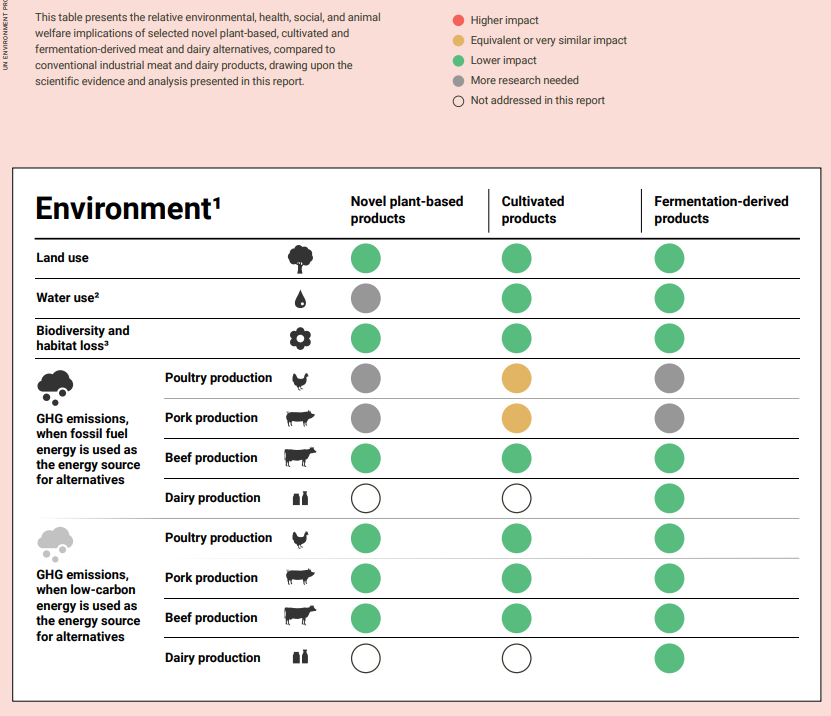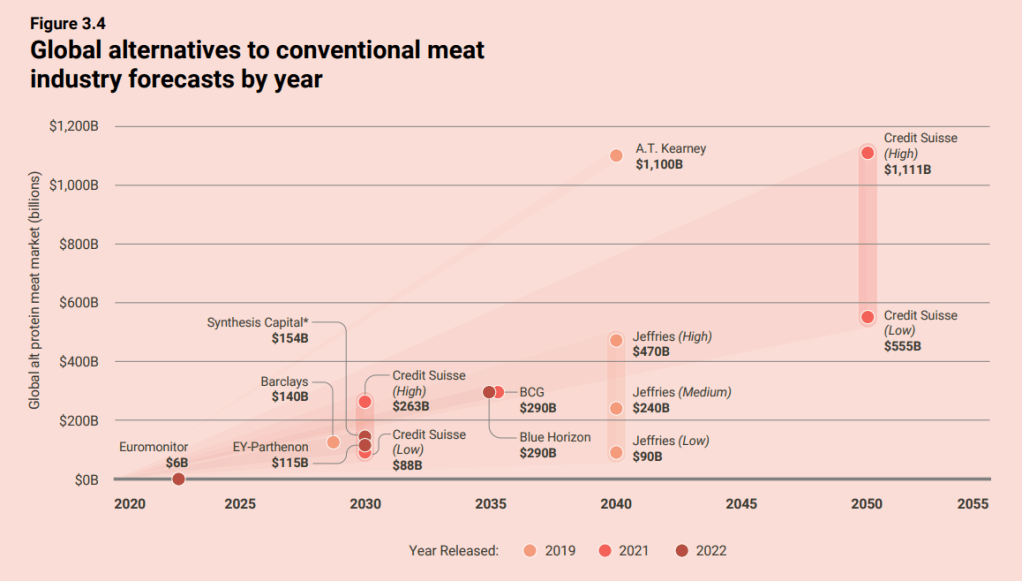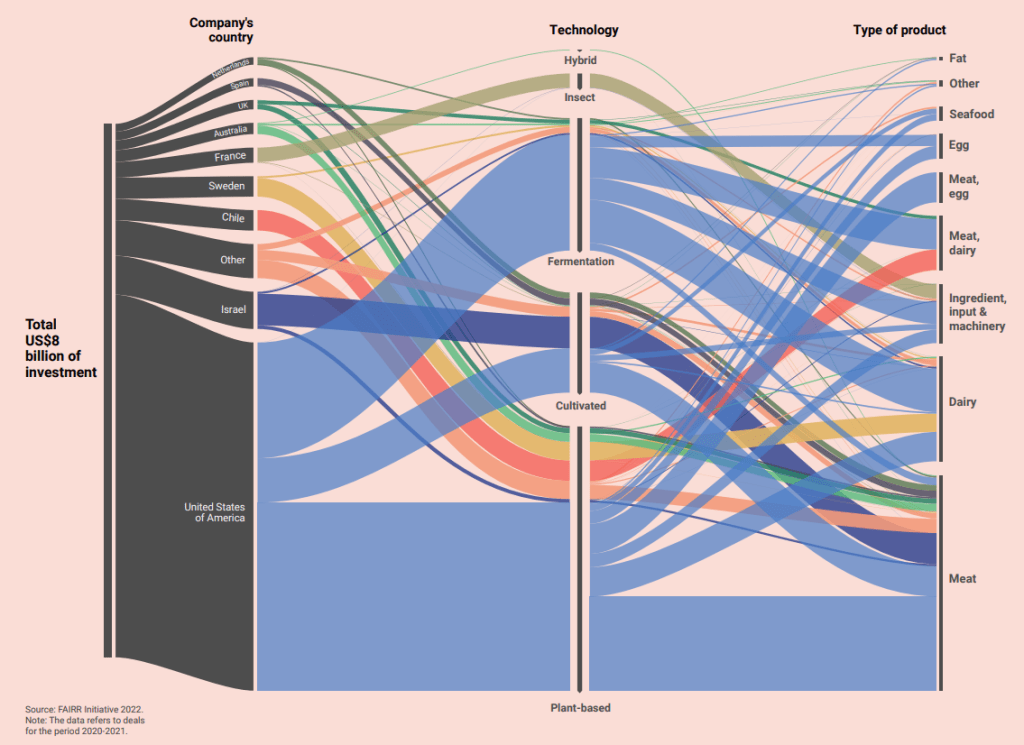The UN has for the first time officially endorsed alternative proteins as a means to reduce greenhouse gas (GHG) produced by the global food system.
The endorsement comes in the form of a report released on 8 December during COP28 by the UN Environment Programme (UNEP) titled What’s cooking? An assessment of the potential impact of select novel alternatives to conventional animal products. The report is a part of UNEP’s Frontiers series, which identifies and draws attention to emerging issues of environmental concern.
Produced with the support of the Government of Belgium, the report focuses on three types of alternatives: 1) Novel plant-based meats, 2) Cultivated meat from animal cells, and 3) Protein-rich products derived through rapid fermentation by microorganisms.

The assessment concludes that these alternatives not only show significant potential for reducing global GHG emissions – of which the animal agriculture industry accounts for 60 percent – but can also contribute to reductions in land degradation and deforestation, water and soil pollution, and loss of biodiversity, among other environmental concerns.
The authors also conclude that novel alternatives can likely play a role in supporting a more sustainable, healthier and more humane food system, with regional differences, while reviewing policy decisions that may make that system more equitable.

“New food alternatives will offer a broader spectrum of consumer choices,” said Inger Andersen, Executive Director of UNEP. “Further, such alternatives can also lessen the pressures on agricultural lands and reduce emissions, thereby helping us address the triple planetary crisis – the crisis of climate change, the crisis of biodiversity and nature loss, the crisis of pollution and waste – as well as address the health and environmental consequences of the animal agriculture industry.
“More government support, as well as open and transparent research, can help unlock the potential of these new technologies for some countries.”
The state of alt proteins in Australia
The assessment also breaks down the status of novel meat and dairy alternatives in different markets and the current actions being taken by those countries’ respective governments.

For example, the report highlights Australia as one in a small group of nations that have provided incentives to novel food producers in the form of tax exemptions, subsidies, and support for energy and market development.
Additionally, Australia was identified as one of the few countries whose policy instruments include professional training and the development of curricula to build knowledge and skills regarding novel ASF production and sustainable agri-food systems.
The report also validates the growth of the ‘flexitarian’ consumer segment in Australia, showing the growing acceptance of meat alternatives in one of the world’s highest meat consuming countries.
However, it should be noted that despite Australia’s status as a leader in scientific development for novel proteins, members of industry are still calling on the government to take more proactive measures, such as greater funding incentives, partnerships, and enabling policies.
To stay up-to-date on the latest industry headlines, sign up to Future Alternative’s enewsletter.
Posted on:


